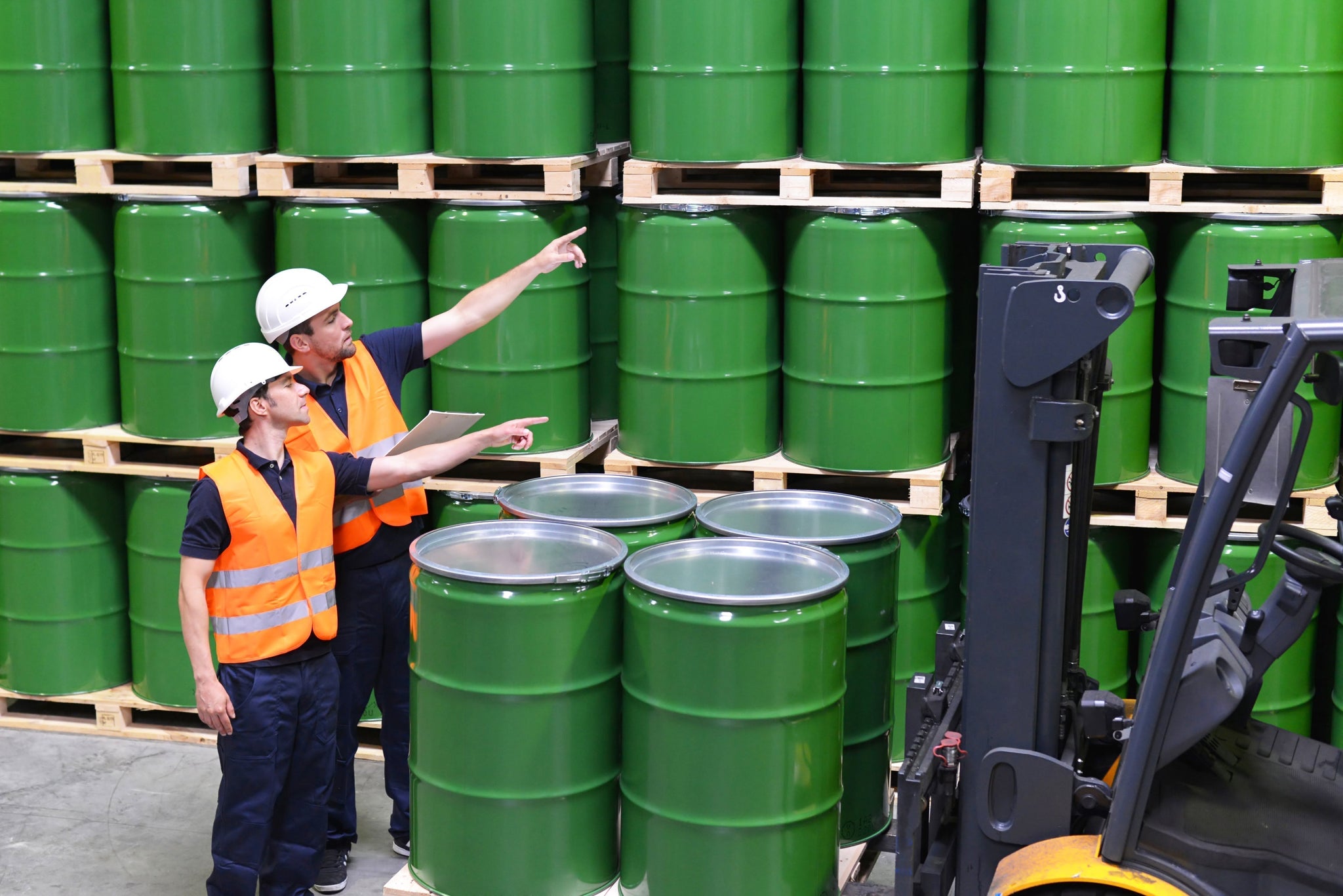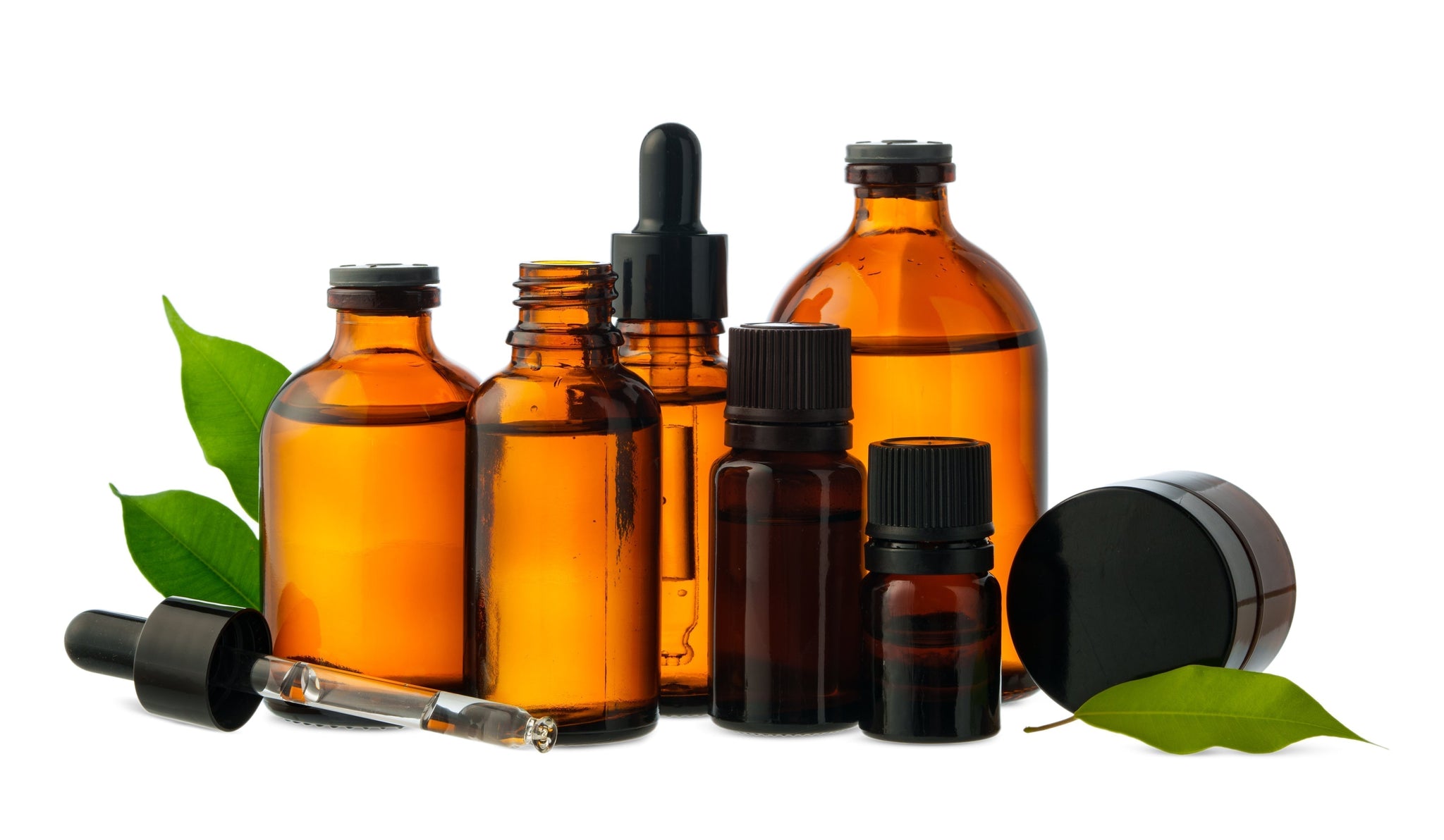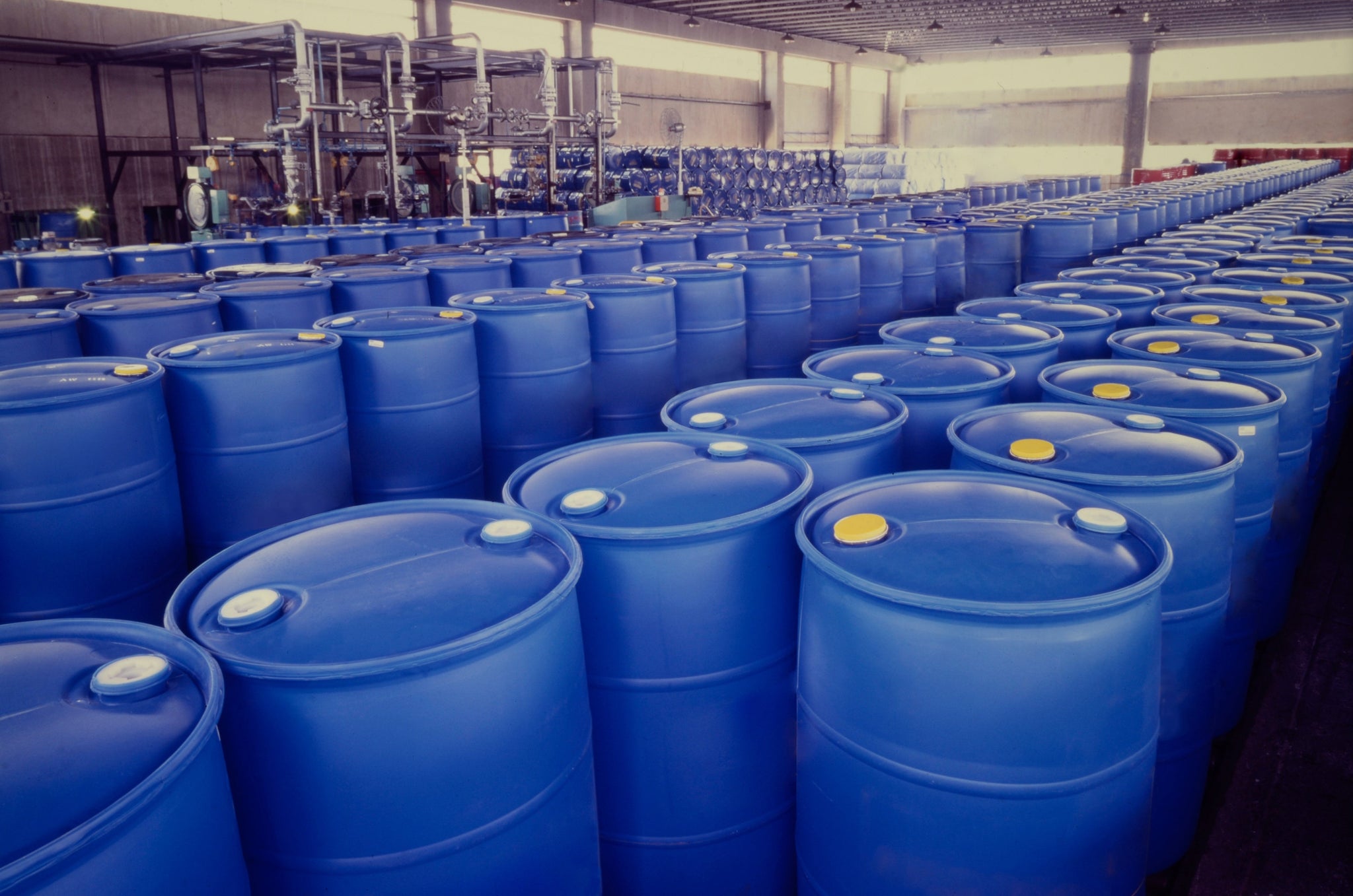All Articles

How to Store Magnesium Chloride
Storing magnesium chloride correctly prevents clumping, degradation, and safety risks. From airtight containers and desiccants to proper segregation and PPE, this guide covers everything you need for safe handling and compliance. Explore recommended storage conditions, labeling rules, and regulatory standards to ensure long-term product quality and workplace safety.
Storing magnesium chloride correctly prevents clumping, degradation, and safety risks. From airtight containers and desiccants to proper segregation and PPE, this guide covers everything you need for safe handling and compliance. Explore recommended storage conditions, labeling rules, and regulatory standards to ensure long-term product quality and workplace safety.

How to Safely Dispose of Magnesium Chloride
Magnesium chloride is widely used in de-icing, agriculture, labs, and industry, but disposal must be done responsibly to avoid environmental damage and regulatory issues. This guide explains why proper disposal matters, how to handle small versus bulk quantities, and the safety measures to follow. Learn approved methods for households, laboratories, and industrial facilities to ensure compliance and protect ecosystems.
Magnesium chloride is widely used in de-icing, agriculture, labs, and industry, but disposal must be done responsibly to avoid environmental damage and regulatory issues. This guide explains why proper disposal matters, how to handle small versus bulk quantities, and the safety measures to follow. Learn approved methods for households, laboratories, and industrial facilities to ensure compliance and protect ecosystems.

Propanol Chemical Overview
Used across industries from coatings and adhesives to pharmaceuticals and research, propanol is a versatile alcohol solvent with wide applications. In this guide, explore its physical and chemical characteristics, benefits, and common uses. Learn safe handling and storage practices, spill response steps, and disposal methods. Compare grades like ACS, HPLC, industrial, and technical, and see how to choose the right option when buying propanol for your operations.
Used across industries from coatings and adhesives to pharmaceuticals and research, propanol is a versatile alcohol solvent with wide applications. In this guide, explore its physical and chemical characteristics, benefits, and common uses. Learn safe handling and storage practices, spill response steps, and disposal methods. Compare grades like ACS, HPLC, industrial, and technical, and see how to choose the right option when buying propanol for your operations.

Types of Propanol
Not all propanol is the same. Food-grade, pharmaceutical-grade, industrial, and electronic-grade options each meet different standards for purity and safety. Explore how these types are used in labs, healthcare, food production, and manufacturing, and find out which grade is right for your operation.
Not all propanol is the same. Food-grade, pharmaceutical-grade, industrial, and electronic-grade options each meet different standards for purity and safety. Explore how these types are used in labs, healthcare, food production, and manufacturing, and find out which grade is right for your operation.

How to Store Propanol
Propanol storage requires more than a sealed container, it demands strict attention to conditions, compatibility, and safety rules. From temperature control to chemical segregation, following best practices helps prevent hazards, extend shelf life, and meet OSHA, GHS, and DOT standards for flammable solvents.
Propanol storage requires more than a sealed container, it demands strict attention to conditions, compatibility, and safety rules. From temperature control to chemical segregation, following best practices helps prevent hazards, extend shelf life, and meet OSHA, GHS, and DOT standards for flammable solvents.

How and Why to Neutralize Propanol
Propanol is a valuable solvent across labs, industry, and cleaning applications, but its flammable nature makes neutralization essential. Proper neutralization lowers vapor risks, prevents contamination, and safeguards water systems from damage. With clear steps and best practices, professionals can manage spills, handle residues, and dispose of propanol responsibly while meeting strict safety and environmental standards.
Propanol is a valuable solvent across labs, industry, and cleaning applications, but its flammable nature makes neutralization essential. Proper neutralization lowers vapor risks, prevents contamination, and safeguards water systems from damage. With clear steps and best practices, professionals can manage spills, handle residues, and dispose of propanol responsibly while meeting strict safety and environmental standards.

How to Safely Dispose of Propanol
Propanol is widely used in laboratories, industry, and household products, but safe disposal is critical. As a flammable VOC, it poses risks to health, the environment, and regulatory compliance. Following approved waste protocols helps prevent pollution, reduce hazards, and ensure proper handling under safety standards.
Propanol is widely used in laboratories, industry, and household products, but safe disposal is critical. As a flammable VOC, it poses risks to health, the environment, and regulatory compliance. Following approved waste protocols helps prevent pollution, reduce hazards, and ensure proper handling under safety standards.

How to Store Castor Oil
Castor oil is a staple across industries ranging from cosmetics to industrial manufacturing. While it is a naturally stable vegetable oil, proper storage is essential to maintain its quality and extend its shelf life. Whether you’re handling it in a lab, warehouse, or home workshop, understanding best storage practices ensures castor oil remains effective, safe, and within regulatory standards.
Castor oil is a staple across industries ranging from cosmetics to industrial manufacturing. While it is a naturally stable vegetable oil, proper storage is essential to maintain its quality and extend its shelf life. Whether you’re handling it in a lab, warehouse, or home workshop, understanding best storage practices ensures castor oil remains effective, safe, and within regulatory standards.

Types of Witch Hazel
Witch hazel is one of the most versatile botanicals in personal care, pharmaceutical, and even industrial formulations. From different percentages of alcohol to distinct grades and extraction methods, knowing what to choose, and why, can make or break your product formulation or process. This guide breaks down the most common types of witch hazel, how they differ, and how to choose the best one for your needs.
Witch hazel is one of the most versatile botanicals in personal care, pharmaceutical, and even industrial formulations. From different percentages of alcohol to distinct grades and extraction methods, knowing what to choose, and why, can make or break your product formulation or process. This guide breaks down the most common types of witch hazel, how they differ, and how to choose the best one for your needs.

Types of Castor Oil
Not all castor oil is created equal. From cold-pressed and refined castor oils to pharmaceutical- or industrial-grade options, understanding the differences helps buyers meet regulatory requirements while ensuring product integrity. Whether your priority is castor oil purity, castor oil percentage of active content, or global certifications like USP or Organic, the right type of castor oil supports safety, efficiency, and results.
Not all castor oil is created equal. From cold-pressed and refined castor oils to pharmaceutical- or industrial-grade options, understanding the differences helps buyers meet regulatory requirements while ensuring product integrity. Whether your priority is castor oil purity, castor oil percentage of active content, or global certifications like USP or Organic, the right type of castor oil supports safety, efficiency, and results.

Propanol Safety & Hazards
Propanol, also known as propyl alcohol, is a colorless, volatile, and highly flammable liquid alcohol used extensively across industrial, laboratory, and pharmaceutical environments. Because of its wide-ranging utility, understanding the hazards associated with propanol is critical for ensuring safe handling, regulatory compliance, and environmental stewardship.
Propanol, also known as propyl alcohol, is a colorless, volatile, and highly flammable liquid alcohol used extensively across industrial, laboratory, and pharmaceutical environments. Because of its wide-ranging utility, understanding the hazards associated with propanol is critical for ensuring safe handling, regulatory compliance, and environmental stewardship.

Propanol Uses & Benefits
Propanol refers to two structural isomers: 1-propanol (n-propanol) and 2-propanol (isopropanol). Thanks to their volatility, miscibility with water and organic compounds, and antimicrobial action, these compounds are essential in various industries ranging from manufacturing to medical labs. In this article, we'll explore the many ways this versatile chemical can be used.
Propanol refers to two structural isomers: 1-propanol (n-propanol) and 2-propanol (isopropanol). Thanks to their volatility, miscibility with water and organic compounds, and antimicrobial action, these compounds are essential in various industries ranging from manufacturing to medical labs. In this article, we'll explore the many ways this versatile chemical can be used.

Shelf Life & Expiration of Propanol
Propanol - whether 1-propanol or 2-propanol (isopropyl alcohol) - is widely used for its solvency, disinfectant properties, and chemical compatibility. However, like most chemical compounds, propanol has a finite shelf life. Understanding how long it lasts and recognizing the signs of degradation is essential for ensuring safety, accuracy, and effectiveness across industrial, laboratory, and pharmaceutical applications.
Propanol - whether 1-propanol or 2-propanol (isopropyl alcohol) - is widely used for its solvency, disinfectant properties, and chemical compatibility. However, like most chemical compounds, propanol has a finite shelf life. Understanding how long it lasts and recognizing the signs of degradation is essential for ensuring safety, accuracy, and effectiveness across industrial, laboratory, and pharmaceutical applications.

Witch Hazel Chemical Overview
Witch hazel is highly regarded for its applications in the skincare and personal care sectors, as well as its use in the pharmaceutical industry. This comprehensive guide provides essential information related to witch hazel, including its main characteristics, properties, practical uses, safety recommendations, and sourcing information.
Witch hazel is highly regarded for its applications in the skincare and personal care sectors, as well as its use in the pharmaceutical industry. This comprehensive guide provides essential information related to witch hazel, including its main characteristics, properties, practical uses, safety recommendations, and sourcing information.

Castor Oil Uses and Applications
Castor oil finds its way into everything from skincare creams and ointments to industrial lubricants, coatings, adhesives, and plastics. Whether you’re developing a personal care product or manufacturing bio-based materials, castor oil offers a renewable, biodegradable, and high-performance alternative to petroleum-based inputs. Read on to learn how to choose which one is right for you.
Castor oil finds its way into everything from skincare creams and ointments to industrial lubricants, coatings, adhesives, and plastics. Whether you’re developing a personal care product or manufacturing bio-based materials, castor oil offers a renewable, biodegradable, and high-performance alternative to petroleum-based inputs. Read on to learn how to choose which one is right for you.

Castor Oil Safety & Hazards
Castor oil is widely used in cosmetics, pharmaceuticals, industrial products, and even food-grade formulations. But while it’s a staple in many industries and DIY projects, it’s important to ask: is castor oil safe, and are there any castor oil hazards you should be aware of? To make the most of its benefits while protecting your health and safety, here’s a closer look at the precautions, handling guidelines, and exposure risks you should know.
Castor oil is widely used in cosmetics, pharmaceuticals, industrial products, and even food-grade formulations. But while it’s a staple in many industries and DIY projects, it’s important to ask: is castor oil safe, and are there any castor oil hazards you should be aware of? To make the most of its benefits while protecting your health and safety, here’s a closer look at the precautions, handling guidelines, and exposure risks you should know.

Expiration & Shelf Life of Castor Oil
Castor oil is a widely used plant-based oil with applications in everything from cosmetics and pharmaceuticals to industrial manufacturing. Like any organic product, it has a finite shelf life. Understanding how long castor oil lasts, how to recognize when it has expired, and how to store it properly is essential for maintaining product quality, safety, and effectiveness.
Castor oil is a widely used plant-based oil with applications in everything from cosmetics and pharmaceuticals to industrial manufacturing. Like any organic product, it has a finite shelf life. Understanding how long castor oil lasts, how to recognize when it has expired, and how to store it properly is essential for maintaining product quality, safety, and effectiveness.

How to Safely Dispose of Castor Oil
Whether you’re cleaning up after a home project or managing a facility that works with large volumes of raw materials, knowing how to dispose of castor oil properly is key to staying safe, compliant, and environmentally responsible. The good news? Safe, simple methods exist for discarding small and large amounts of castor oil in line with regulations.
Whether you’re cleaning up after a home project or managing a facility that works with large volumes of raw materials, knowing how to dispose of castor oil properly is key to staying safe, compliant, and environmentally responsible. The good news? Safe, simple methods exist for discarding small and large amounts of castor oil in line with regulations.

How and Why to Neutralize Castor Oil
Castor oil is a widely used natural oil, but when it comes to cleanup, disposal, or pH-sensitive formulations, many people ask: How do you neutralize castor oil? This guide explores why neutralization matters and outlines practical steps for handling spills, waste, and industrial processes involving castor oil.
Castor oil is a widely used natural oil, but when it comes to cleanup, disposal, or pH-sensitive formulations, many people ask: How do you neutralize castor oil? This guide explores why neutralization matters and outlines practical steps for handling spills, waste, and industrial processes involving castor oil.

Castor Oil Chemical Overview
Castor oil is a powerful and versatile natural oil derived from the seeds of the Ricinus communis plant, commonly known as the castor bean plant. It plays a central role in products like laxatives, skin creams, hair conditioners, lubricants, coatings, and even biodiesel. Read on for more information on castor oil.
Castor oil is a powerful and versatile natural oil derived from the seeds of the Ricinus communis plant, commonly known as the castor bean plant. It plays a central role in products like laxatives, skin creams, hair conditioners, lubricants, coatings, and even biodiesel. Read on for more information on castor oil.

Sodium Bicarbonate Overview
This overview explores the essential facts about sodium bicarbonate, including its chemical properties, practical uses, safety considerations and availability in various grades and packaging formats. Whether you’re a formulator, researcher, or facility manager, understanding the basics of sodium bicarbonate is the first step to leveraging its full potential.
This overview explores the essential facts about sodium bicarbonate, including its chemical properties, practical uses, safety considerations and availability in various grades and packaging formats. Whether you’re a formulator, researcher, or facility manager, understanding the basics of sodium bicarbonate is the first step to leveraging its full potential.

How To Store Sodium Bicarbonate
Understanding the correct way to store this versatile chemical is crucial. Proper sodium bicarbonate storage directly impacts its chemical stability, preventing degradation over time and ensuring it performs as expected when you need it.
Understanding the correct way to store this versatile chemical is crucial. Proper sodium bicarbonate storage directly impacts its chemical stability, preventing degradation over time and ensuring it performs as expected when you need it.

Types of Sodium Bicarbonate
Sodium bicarbonate is a remarkably versatile compound. Its applications span a wide array of fields, from food and pharmaceuticals to more specialized roles in laboratories and various industries. The distinction between these types are crucial. Read on for what to look for when selecting sodium bicarbonate.
Sodium bicarbonate is a remarkably versatile compound. Its applications span a wide array of fields, from food and pharmaceuticals to more specialized roles in laboratories and various industries. The distinction between these types are crucial. Read on for what to look for when selecting sodium bicarbonate.

Witch Hazel Uses & Benefits
This article explores the full spectrum of witch hazel’s uses across multiple sectors. You’ll discover where it’s most effective, how it contributes to product performance, and why its natural composition makes it a preferred ingredient in certain regulated industries.
This article explores the full spectrum of witch hazel’s uses across multiple sectors. You’ll discover where it’s most effective, how it contributes to product performance, and why its natural composition makes it a preferred ingredient in certain regulated industries.

Customer Stories
Real reviews from real customers.

Industries
Find chemicals for your industry.

Product Categories
Real reviews from real customers.

Product Specs
Product Specification Sheets for essential chemicals.

SDS
Printable chemical material Safety Data Sheet PDFs.

COA
Printable Certificates of Analysis in PDF format.
